ERC (European Research Council) was established in 2007 by the European Commission. It is the main European funding body for excellent frontier research. It funds researchers of any nationality and age to run projects based across Europe.
MSCA (Marie Skłodowska-Curie Actions) funds excellent research and innovation and equips researchers at all stages of their careers with new knowledge and skills through mobility across borders and exposure to different sectors and disciplines.

PI: Claudia Irti
Fellow: Francesca Rotolo
Duration: 35 months
Funding programme: HORIZON-MSCA-2024-PF-01
Total budget: € 376.768,90
musAIc aims at exploring whether the legal category of systemic risk recently provided by the AI Act can include the systematic impacts posed by certain generative AI systems (genAI) on the fundamental rights of cultural pluralism. The use of genAI is growing rapidly, particularly in the music domain, which accounts for 8% of its global market. While their indisputable economic and societal benefits are well recognized in existing literature, concerns about their potential negative impacts on cultural pluralism are raising. Nonetheless, so far scholars have not yet fully acknowledged these impacts as systemic risks according to EU digital law (including the Digital Services Act), nor as potentially leading to cultural impoverishment. Focusing on the music sector as a paradigmatic case, musAIc aims to address this gap by building a new framework to facilitate the development of the methodology and criteria required by Art. 51 and ff. of the AI Act and the drafting of codes of practice (Art. 56). To build it, I will analyze and test in practical environments what is a creative process within an algorithm-dominated context, and I will explore cultural impoverishment as a possible consequence of the architecture of these systems and their usage context. This will culminate in developing guidelines to aid stakeholders to assess this risk and EU policymakers to address it. To reach this goal, musAIc uses a strong interdisciplinary approach, bridging law, sociology and computer science and considering the needs of the general public as well as professional and amateur musicians.

PI: Matteo Legrenzi
Fellow: Rønn Anne Kirstine
Duration: 24 months
Funding programme: HORIZON-MSCA-2024-PF-01
Total budget: € 193.643,28
This research project aims to investigate the inter- and transnational dynamics of opposition to regimes in ethno-religiously divided societies, with a specific focus on how groups within the Lebanese and Iraqi diaspora populations contribute to challenging the regimes in their countries of origin. By uncovering novel aspects of diaspora communities’ role as drivers of change, the project will provide significant contributions to the scientific debates on increasing stability, prosperity, and democratic accountability in countries with a history of sectarian conflict and authoritarian rule. Furthermore, it will generate relevant knowledge for policymakers and EU institutions on how to engage diaspora communities in promoting stability in the Middle East during times of increased unrest. So far, most studies of Lebanon's and Iraq's diasporas have focused on how these communities challenge regimes in their countries of origin through direct forms of activism such as mobilizing expat voters or organizing solidarity demonstrations in support of anti-regime uprisings. Less is known about how they use initiatives, such as social entrepreneurship, cultural engagement, reconstruction, and charity work, to exercise more indirect forms of oppositional engagement. Given the limited success of direct political campaigns, these indirect forms of engagement provide an alternative way to achieve impact. The project seeks to uncover the nature, potential, and significance of indirect oppositional diaspora engagement.

PI: Matteo Legrenzi
Fellow: Chiara Lovotti
Duration: 35 months
Funding programme: HORIZON-MSCA-2024-PF-01
Total budget: € 384.484,02
RuMEA aims to analyse Russia’s interventions in recent conflicts of the Middle East and Africa (MEA), exploring their interaction with local political contexts. Russia approaches these crises through a mix of hard power, coercive diplomacy, and economic activism, guided by the principle of non-interference with these regions’ authoritarian regressions. As such, it provides local leaders with a model of conflict management that differs radically from liberal-oriented approaches that dominated international customs in the post-Cold War era. But what explains local preferences for ‘the Russian model’? This project adopts a dual perspective to analyse (1) the Russian model’s distinctive features and (2) explain its appeal to countries on the ‘receiving end’ of Russia’s political intervention, advancing debates in Russian and Middle Eastern/African studies. It utilises a diverse set of methodologies to deepen specific aspects of Russia’s engagement in the MEA, including elite interviews (to assess local preferences), media content analysis (to understand public discourse), and archival investigation (to document Russia’s long-dated experiences of dealing with regional crises – Cold War and the 1990s – which may offer insights into contemporary practices). These are the gaps I intend to address with this research project, which lies at the intersection of Area Studies, International Relations (IR), and International History. RuMEA builds upon methodological skills I gained during my previous experiences as a historian working on Soviet-Arab relations while taking my research trajectory into new directions. The Fellowship will be based at Harvard University (Kennedy School, HKS) and Ca’ Foscari University of Venice (UNIVE), and includes secondments at the University of Oxford and Carnegie Beirut office.
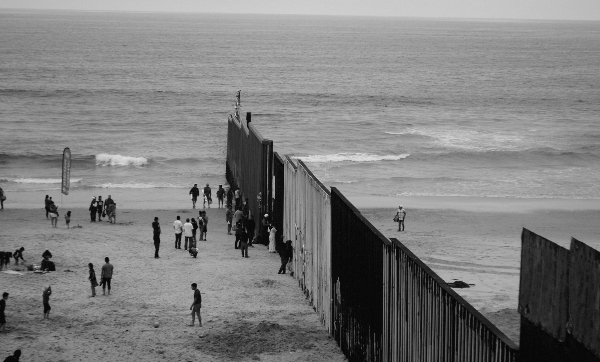
PI: Matteo Legrenzi
Fellow: Susann Kassem
Duration: 35 months
Funding programme: HORIZON-MSCA-2024-PF-01
Total budget: € 399.868,90
Existing literature on borders and border contestations in post-conflict societies is overwhelmingly written through the lens of the nation-state, state-failure, underdevelopment and security. This research analyses borders as complex social processes that are not only enacted through state policies and border policing, but also through perceptions, practices, identities and visions of border communities. It offers a historical ethnography about the multiple reorganisations of everyday life and forced migrations under the shifting borders and systems of rule in south Lebanese frontier villages. This research will provide a political context for the circumstances that created popular struggle against Western interventions around borders. Contesting Colonial Borders will be carried out with an outgoing phase in Geneva, with a secondment of fieldwork in Lebanon and a return phase in Italy. Primary and secondary material and resources in each of these countries will enable writing a social history from the perspective of people who resided in this volatile and constantly changing border area. The research will comprise archival research in Geneva and Beirut, as well as oral history interviews with former residents of the south Lebanese border zone. Working with leading experts on topics such as war, displacement, migration, and borders in each of these countries, this project will form a transnational and interdisciplinary network on these issues. The main output of the project will be a monograph tentatively titled Spatial Contestation in Post-Conflict Situations: A Historical Ethnography of Border Communities in South Lebanon, which will be submitted to Cambridge Middle East Studies Series. Furthermore, two journal papers will be submitted on interlinked dynamics of spatial contestations, colonial history, the state, and society to the Journal of Middle East Studies, the International Journal of Migration and Border Studies, or Social Anthropology.
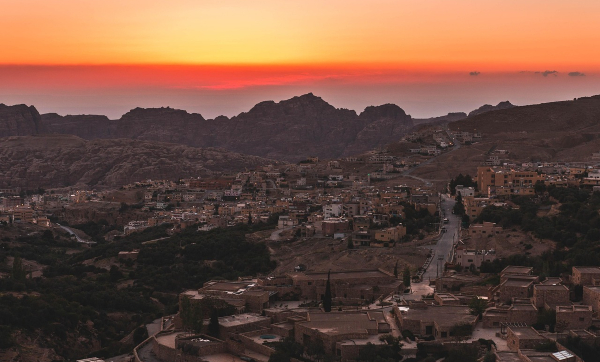
PI: Matteo Legrenzi
Fellow: Enna Antea
Duration: 35 months
Funding programme: HORIZON-MSCA-2024-PF-01
Total budget: € 302.052,20
The project has the overall objective to provide a broader understanding of conflict dynamics in Jordan and Lebanon and improve international organizations and EU programming on social cohesion and stability reducing the risks of internal social conflict outbreak in these countries. The action aims at assessing social cohesion in Jordan and social stability in Lebanon, by exploring internal conflict dynamics and identifying similar patterns and systematic differences. Moreover, it has the goal to identify concrete measures to increase social cohesion and stability in Lebanon and Jordan to reduce the risk of internal social conflict. Given the current state of affairs in the MENA region, the relevance and urgency of this study are paramount in terms of both timing and scope. This project is intended to provide crucial insights pertaining to social cohesion and stability to the EU for its external endeavors in the Middle East, with a particular emphasis on Jordan and Lebanon. This research not only addresses the existing gap in literature but also explores two case studies from both a top-down and bottom-up approach. It will employ a mixed-method methodology, with a significant focus on Participatory Action Research to ensure the inclusion of key stakeholder viewpoints in the research findings.

PI: Matteo Legrenzi
Fellow: Artemis Papatheodorou
Duration: 01/09/2025 - 31/08/2028
Funding programme: HORIZON-MSCA-2023-PF-01
Total budget: € 265.099,20
Contrary to conventional narratives on the history of archaeology and official museum narratives, arguing that Mediterranean states and societies neglected antiquities, archaeological legislation was adopted for the first time in the European North and in the Mediterranean. Modern Mediterranean Archaeological Regimes in a Global Context (MMARe) investigates the Mediterranean legal archaeological regimes from 1789 to 1945, individually and comparatively. It similarly traces their influence at the international level, through the League of Nations (LN). MMARe contributes with novel approaches and substantive arguments to the debate on decolonizing the museum, and suggests concrete tools for provenance research and ways forward in the discussion on the restitution of antiquities.
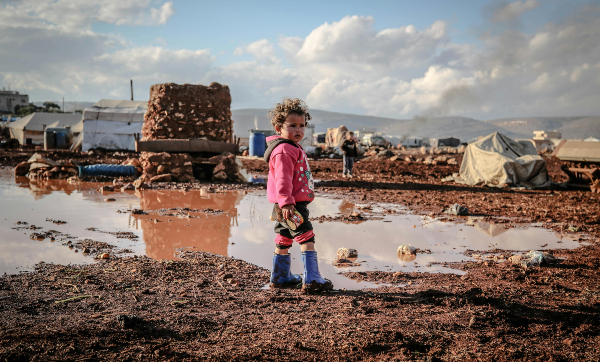
PI: Matteo Legrenzi
Fellow: Altea Pericoli
Duration: 01/09/2025 - 31/08/2028
Funding programme: HORIZON-MSCA-2023-PF-01
Total budget: € 265.099,20
ISLAMICAID has the overall objective to provide a broader understanding of humanitarian aid in conflict zones as implemented by Islamic actors and improve the dialogue between Western and Gulf donors. The Action has two specific objectives. One is related to Islamic social welfare instruments and their contribution to social protection and economic empowerment. The second concerns the foreign aid of Saudi Arabia, Qatar, and the UAE and the implementation through different channels, including charity organisations. These two objectives will consider interventions in three conflict zones, such as Yemen, Sudan, and Syria, from 2015 to 2022. The necessity to enhance the coordination of aid interventions and expand the resource base for humanitarian financing makes this research relevant in terms of timing and scope. The Action aims to contribute to the DG ECHO Humanitarian Logistics Policy, which promotes effective coordination with other humanitarian organisations in complex crises. Not only does the research fill the gap in the literature, but it also analyses aid practices from a top-down and bottom-up approach with an anthropological perspective through fieldwork and ethnographic research, which will produce new evidence of Islamic financing instruments, Gulf donors' decision-making process, and everyday humanitarian negotiation practices of organisations in the field. Through the collaboration between Ca' Foscari and Princeton University, it will be possible to expand the fellow's previous study on Islamic aid practices, receive training in anthropology, ethnographic research and social network analysis, and enhance the knowledge about Gulf donors and humanitarian financing in conflict zones.
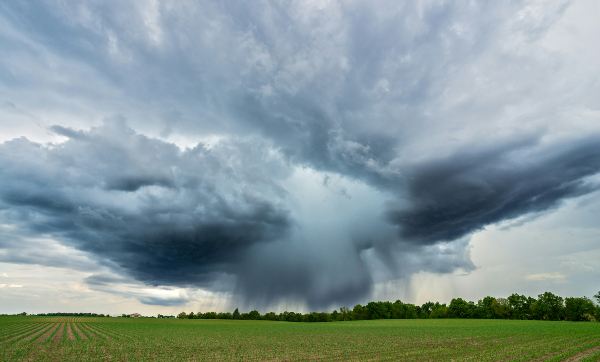
PI: Monica Billio
Fellow: Mariam Aslany
Duration: 01/01/2024 - 31/12/2027
Funding programme: HORIZON-MSCA-2023-PF-01
Total budget: € 265.099,20
Social scientists have generally treated climate change (CC) vulnerability as homogeneous across social space, underestimating the serious social distortions and conflicts it produces. Previous research conducted by the Fellow suggests that CC impact is unevenly distributed, even within small social units such as Indian villages, West African towns, or Fijian islands. This project is guided by a hypothesis derived from Fellow's earlier work: economic and social relations (class, gender, ethnicity, religion, caste) have an overwhelming impact on CC vulnerability and adaptation practices. Examining one of the regions where the impact of CC is most advanced – rural India – the project aims to generate detailed empirical data for tracing the connections between CC and existing forms of social stratification. Under the supervision of leading experts in agrarian studies, environment, and modelling, the project result will be turned into a generalisable model that can be used to understand and predict other agrarian societies’ experiences of CC, and their differential modes of adaptation. Drawing on economic sociology, socioecology and environmental economics, the project's empirical research will take place in two villages in Maharashtra, India, where agriculture is in the midst of an ongoing crisis caused by biophysical processes. The Fellow will employ mixed methods, using quantitative household surveys and semi-structured qualitative interviews, which will be collected during two research visits to India. The development of an evidence-based framework will make a pioneering contribution to our ability to address the differing ways in which different members of a society are impacted by, and respond to, CC. The project addresses core EU objectives, such as “preparedness for the impact of climate change to protect lives and assets,” so helping confirm the EU as leading developer of knowledge solutions for the most pressing problems of humanity.

PI: Paolo Pellizzari
Duration: 01/03/2021 - 28/02/2025
Funding programme: MSCA - Innovative Training Networks
Total budget: € 3.982.061,52
Budget assigned to Ca' Foscari: € 522.999,39
Website: EPOC
Many of the main current economic and societal challenges in Europe are characterised by complex dynamic patterns stemming from path dependency, irreversibility, systemic risk and (local) interaction of heterogeneous agents. The Innovative Training Network EPOC aims at advancing the state-of-the-art and the applicability of computationally intensive methods for decision and policy analysis and at using these methods in the domains of climate change and innovation. This agenda will be pursued by combining an interdisciplinary research agenda with an innovative European joint doctoral training programme. Early Stage Researchers will gain expertise and skills in data science, network theory, agent-based simulation, and economic modelling, with focus on climate change and innovation, and will apply these skills in their individual research projects. The academic training will be complemented by Transferable Skills Training Measures, Inter-Sectoral Training Measures, provided by non-academic partners, and Career Development Training. Interaction with stakeholders, policy makers and the general public will play an important role in pursuing the EPOC agenda and disseminating the results.

PI: Carlo Giupponi
Duration: 01/02/2019 - 31/12/2022
Funding programme: MSCA - Individual Fellowships
Budget assigned to Ca' Foscari: € 262.269,00
More than 286 internationally shared river basins supply 60% of global freshwater. The United Nations and the Council of European Union has highlighted the potential of transboundary water diplomacy. The complex interdependencies between humans and water in these transboundary basins remain poorly understood in the newly proposed discipline of socio-hydrology. Therefore, an assessment of social-ecological interdependencies in transboundary water resources systems is now urgently required for implementing target 6.5 of SDGs and for fulfilling the EU’s commitment on international peace and security. The overall objective of the envisaged research is to develop new understandings of complex human-water systems in large transboundary river basins with an aim to contribute scientific advancement of socio-hydrology and to enhance transboundary cooperation for international peace and security. The proposed research will be hosted in two highly qualified laboratories (during outgoing phase at MIT, with Prof. Susskind and during return phase at UNIVE with Prof. Giupponi). Going beyond the state-ofthe-art, the proposed project will develop for the first time: an analytical framework of complex tranboundary water system; comparative network analysis for social ecological systems in two river basins; consideration of negotiation theory and role-play game in developing transboundary cooperation strategies. The proposed project is fundamentally interdisciplinary in characters. The scientifically innovative and socially relevant (for EU and the Globe) proposed project will help me achieve higher levels of professional maturity through innovative research, advanced training, the transferrable skills and interdisciplinary experiences in two highly qualified institutions both at MIT and at UNIVE. These unique experiences will support to achieve my short- (e.g., human-water interactions), medium- (e.g., young investigator) and long-term (permanent position in academia) career goals.
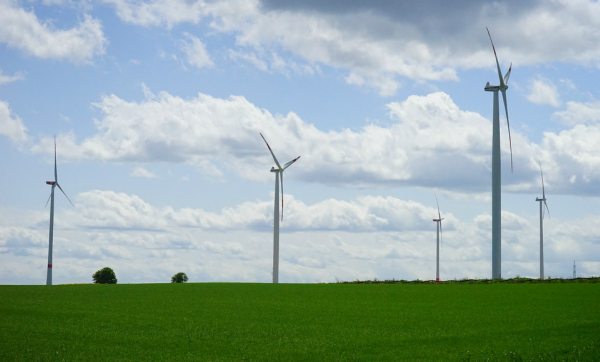
PI: Enrica De Cian
Duration: 01/02/2018 - 28/02/2023
Funding programme: ERC Starting Grant
Budget assigned to Ca' Foscari: € 1.495.000,00
Website: ENERGYA
ENERGYA will improve our understanding of how energy and energy services can be used by households and industries to adapt to the risk posed by climate change. Specifically, the project will develop an interdisciplinary and scalable research framework integrating data and methods from economics with geography, climate science, and integrated assessment modelling to provide new knowledge concerning heterogeneity in energy use across countries, sectors, socioeconomic conditions and income groups, and assess the broad implications adaptation-driven energy use can have on the economy, the environment, and welfare.
The key novelty of ENERGYA is to link energy statistics and energy survey data with high spatial resolution data from climate science and remote sensing, including high-resolution spatial data on meteorology, population and economic activity distribution, electrification, and the built environment.
ENERGYA has three main objectives. First, it will produce novel statistical and econometric analyses for OECD and major emerging countries (Brazil, Mexico, India, and Indonesia) to shed light on the underlying mechanisms driving energy use. Second, it will infer future potential impacts from long-run climate and socioeconomic changes building on historical empirical evidence. Third, it will analyse the macro and distributional implications of adaptation-driven energy use with an economy-energy model characterising the distribution of energy use dynamics across and within countries.
Given the central role of energy as multiplier for socioeconomic development and as enabling condition for climate resilience, the research proposed in ENERGYA will result in timely insights for the transition towards sustainability described by the Sustainable Development Goals adopted by the United Nations as well as the Paris International Climate Agreement.
|
|
ACTION - Assessing Climate TransItion OptioNs: policy vs impacts | 124 KB |
|
|
EX-SIDE - Expectations and Social Influence Dynamics in Economics | 127 KB |
|
|
ION - Information Diffusion on Networks | 126 KB |